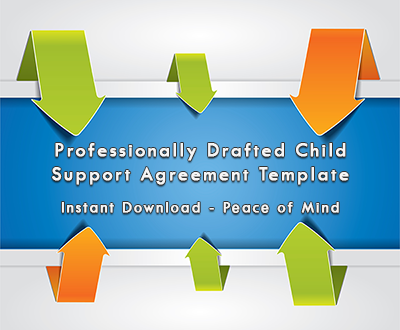There are a bunch of grey areas when it comes to managing a separation from a long term partner who is also a parent of your child/ren. Thankfully taking care of child support payments is reasonably black and white.
You can either apply to the Child Support Agency (CSA) so that they make an assessment on what the payments should be or you can negotiate with your ex-partner to work out an arrangement.
The advantage of going to the CSA is it involves a third party who can make a decision for you which will reduce the scope for arguments enormously.
The CSA uses an assessment method set out in the Child Support (Assessment) Act, 1989. They consider a range of factors, including the costs of raising the children, the income of both parents as well as the percentage of time that each parent cares for the children.
Once the CSA makes a determination about what the payments will be it is enforceable and you can opt for the Child Support Office to collect the payments directly from your ex on your behalf if you wish.
Then there’s the option of working with your ex-partner to hash out a deal.
This can be more difficult which is why you need to put the arrangement in writing to save arguments down the track. Whilst it might take more effort to hammer out the details initially, documenting your agreement in writing will save you enormous hassles later if one partner decides they no longer want to honour the agreement.
Let’s look at a few scenarios where making a private child support agreement would work better than applying to the CSA
It would be appropriate to use a Child Support Agreement if:-
• You have made your own private arrangement for child support with your ex-partner outside of the Child Support Agency and wish to formalise your agreement;
• You have negotiated to receive a lump sum payment instead of the total (or a percentage) of your regular child support payments;
• You have negotiated to transfer property such as the family home (or a certain percentage of the family home) that is to be credited as 100% or other specified percentage of your child support entitlement;
• You wish to vary the child assessment amount determined by the Department of Human Resources, for example, by increasing or decreasing the amount payable.
These are some of the instances where it would be appropriate for you to use a Child Support Agreement.
What is the difference between a limited and binding agreement?
There are two types of child support agreement. They are:-
What is the difference?
A limited agreement can only be for an amount equal to or higher than the assessment amount. You must have a child support assessment in place before making a limited agreement. In addition, it is easier to terminate a limited agreement than a binding agreement. For example, a limited agreement can be ended after three years by notice in writing.
A binding agreement can be made for any amount – either higher or lower than the assessment amount. There is no requirement to receive a child support assessment before making a binding agreement. A binding agreement can only be ended in very limited circumstances, such as by a court order, by an agreement by both parties to terminate it or by replacing it with another binding child support agreement.
You must receive independent legal advice about your agreement before you sign it. This is so that you are fully informed about how the agreement will affect you before you commit to it, as they are extremely difficult to get out of once you have signed. This also prevents either party from arguing that they did not understand what they were signing.
You can register either agreement with the Child Support Agency and you can arrange for them to collect and disburse the payments specified in the agreement (Child Support Collect). Alternatively, you can make private arrangements with your ex-partner for the payment of child support directly, referred to as Private Collect.
It is a common arrangement for the party retaining the marital home to receive a larger proportion of the home in consideration of child support and in lieu of the smaller regular payments they would have otherwise received from their ex-partner. This might allow the party to retain the home in a situation where they otherwise may not have been able to afford to.
Which option will work best for you depends on your personal circumstances and the type of relationship you have with your ex-partner. They both offer a way of reducing friction between you by providing a written document that you can refer to when memory becomes a little hazy.


